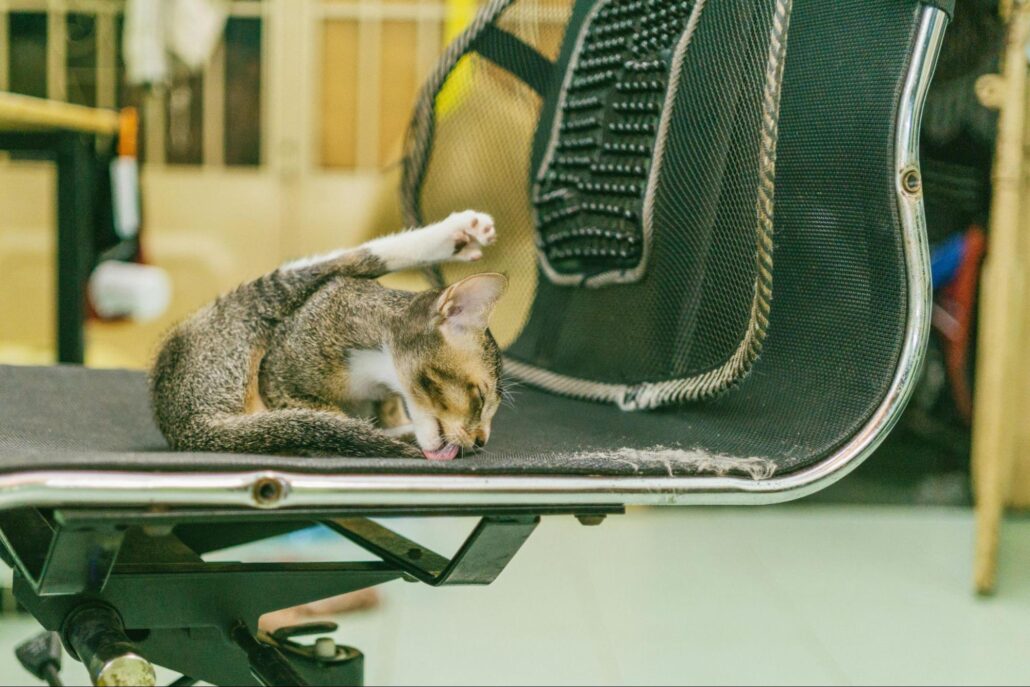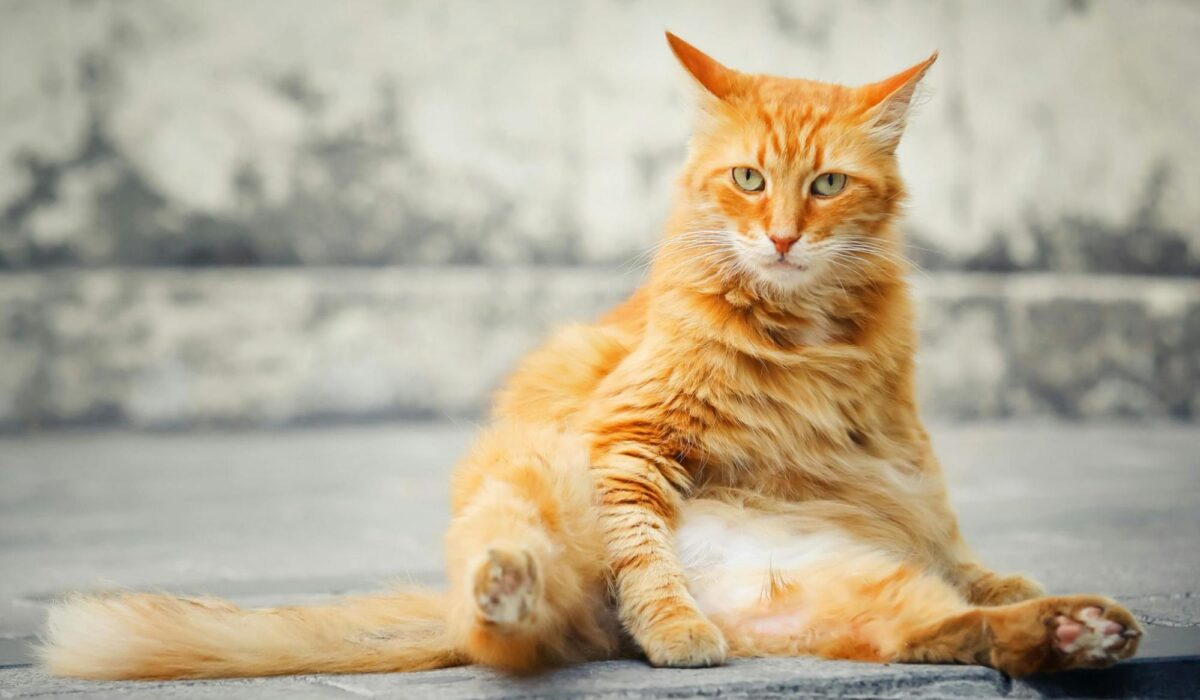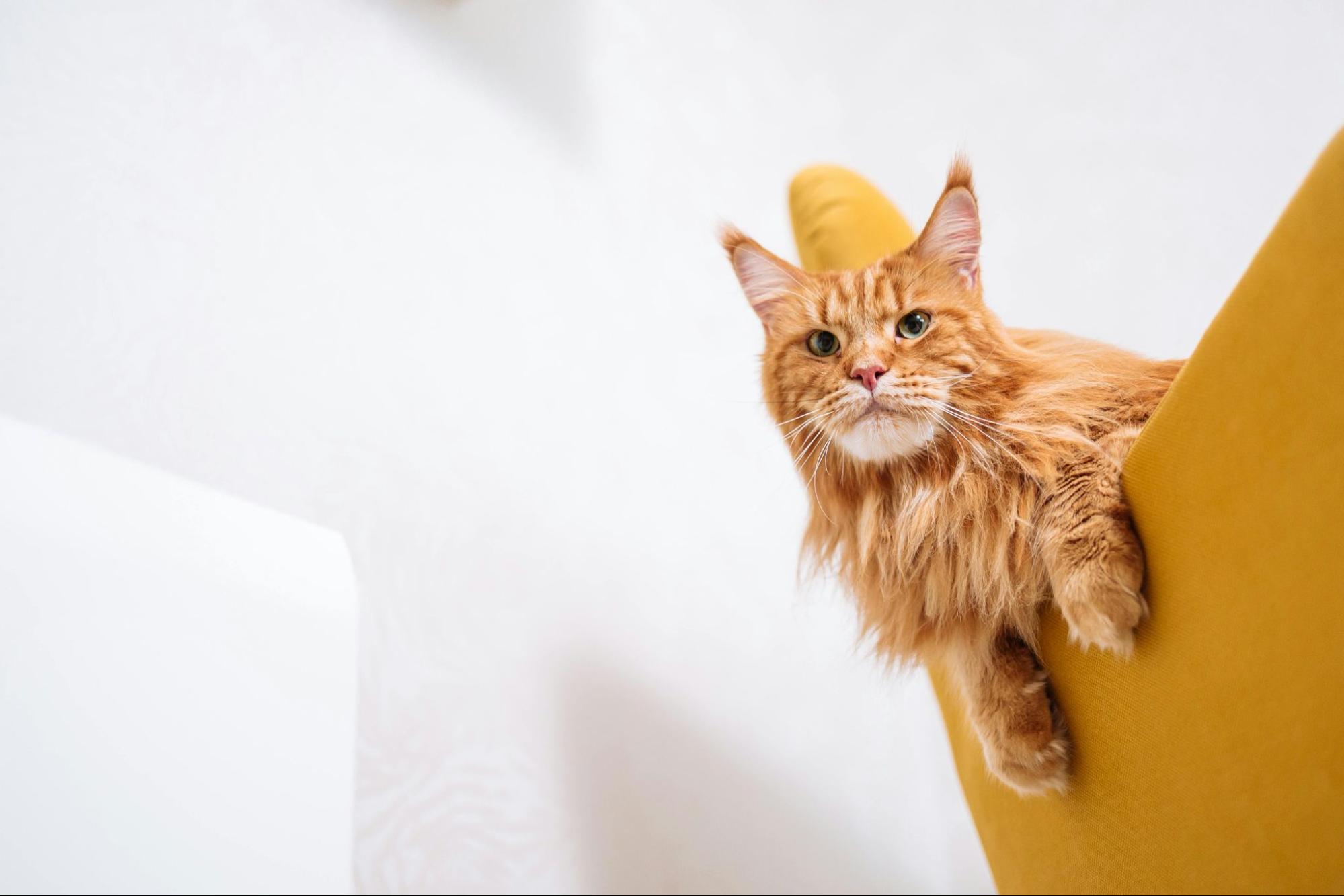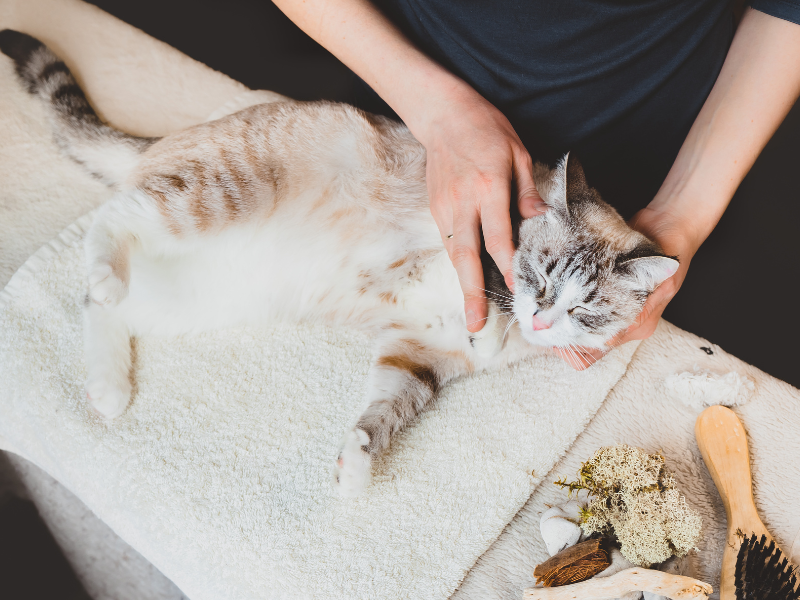Cat Hair, Don’t Care: Why Cats Aren’t Always Self-Grooming
You’ve seen it a million times—your cat gracefully bringing its paw to the mouth, running its sandpapery tongue along its fur to give it a nice little polish. It would seem that cats have this whole grooming thing mastered. That’s why you might be surprised to learn that cats aren’t the expert groomers you think they are—and some are certainly less skilled than others.
Why Cats Groom Themselves
There’s a lot more to all that licking and swiping than appearances. Sure, a good cat grooming routine will keep bad fur days away, but grooming is important to your cat’s health.
First of all, self-grooming helps cats regulate their body temperature. When a cat licks its fur, the saliva evaporates, creating a cooling effect—kind of like how sweating works for us. It also helps them distribute natural oils produced by their skin, which keeps their coat waterproof and healthy, and removes excess fur. This is especially important for cats that live outdoors or in places where the weather is constantly changing.
If your cat lives outside, they’re probably putting their natural hunting skills to the test. By keeping their fur clean, they reduce any odors that might give away their hiding spot.
Let’s not forget the most obvious reason cats groom themselves—they need to get rid of loose fur, dead skin, and parasites, all of which can make them uncomfortable or even affect their health.
Physically speaking, cats are well-suited for self-grooming. They’re flexible enough to reach almost anywhere on their bodies. They also have tiny little barbs all over their tongues, which help to lift away excess fur and leave them feeling fresh.
However, keeping a clean face and coat are just the start of self-care. There’s more to it than licking and bathing, which is why cats fall short of being expert groomers.

What Cats Can—And Can’t—Do for Self-Care
Cats can do a lot to keep themselves clean. You’ve seen it for yourself—cats are constantly licking themselves, flexing their claws, and trying to get that stubborn bit of fur to stay put. They do it all with a purr, so they probably think they’re doing a good job.
But again, they can’t do everything. Let’s review what cats can and can’t do in their care routine.
How Cats Can Groom Themselves
- Clean their fur. Cats can use their tongues to clean their fur. Their rough tongues make it easy to remove some loose fur and dirt.
- Cool themselves. Licking fur can also create a cooling effect. The saliva evaporates to keep cats feeling refreshed.
- Distribute natural oils. Self-grooming helps to spread natural oils along the skin and fur. Kind of like how humans produce hair oils for a healthy scalp, your cat also produces oils to protect their skin and keep their coat shiny.
- Remove loose fur. Regular licking reduces the amount of loose fur flying around your home. It helps to reduce shedding and matting and keep your cat’s appearance healthy.
- Maintain good hygiene. Cats will keep their paws, face, and private areas clean by licking them. This is important for their health.
How Cats Can’t Groom Themselves
- Deal with matting. Matting refers to large patches of hair that become tough, tangled, and unsightly. Mats occur when there’s too much oil buildup, when dirt isn’t removed, or when loose fur doesn’t shed properly. Cats with long or dense fur, like Persians or Maine Coons, can struggle with mats and tangles. These mats can become tight and painful, and cats often can’t manage them on their own.
- Reach certain spots. Despite their flexibility, cats can’t reach all areas of their body to clean. Certain spots, like the ears and base of the tail, are out of reach. Older, overweight, or less flexible cats might have trouble reaching all areas of their bodies, such as their back.
- Eliminate parasites. If your cat has fleas or other parasites, a little licking isn’t enough to get rid of them. They might benefit from a medicated bath (like a flea dip) or other targeted solutions. Professional human groomers also have the benefit of sight and knowing what to look for. While self-grooming can remove some fleas and ticks, it’s not always enough. Infestations might require human intervention with special tools and treatments.
- Address skin conditions. Cats can’t diagnose or treat skin problems like allergies, infections, or dermatitis. These conditions often require veterinary care.
- Clean their teeth and ears. Cats can’t effectively clean their own teeth or ears. Regular dental care and ear cleaning are areas where they often need human assistance to prevent infections and dental diseases.
These aren’t skills your precious kitty is likely to learn any time soon. While self-grooming is great for daily cleanings, make sure you’re giving your feline a more thorough grooming every few weeks. Proper cat grooming is important for their overall health.
Leave Cat Grooming to Our Kitty Spaw Experts
Cats are equipped with remarkable self-grooming habits and skills. However, they’re not entirely self-sufficient. Regular grooming sessions will ensure they stay healthy, comfortable, and looking their best.
Our Kitty Spaw mobile grooming experts specialize in feline health and wellness. We come to you to reduce the stress on your cat. They can receive baths and other treatments in familiar surroundings and avoid a nerve-wracking car trip. Our Certified Feline Master Groomers are also skilled in looking for health issues, such as skin conditions or parasites, so you can take quick action.
Request an appointment today and learn how we’re turning frisky felines into precious purrers.




